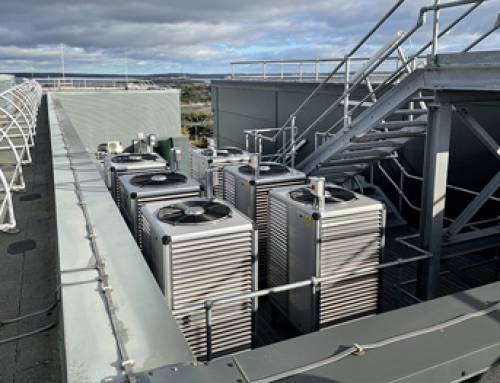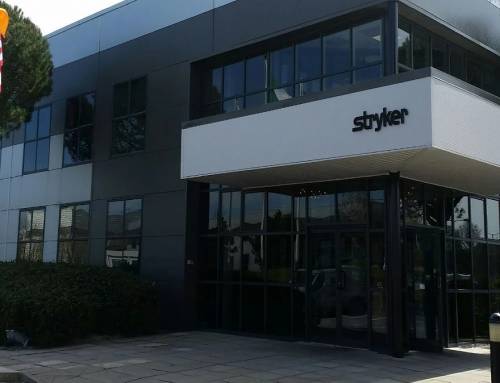CUPRA Car Garage (Wexford)
Project Overview
As part of a broader push toward sustainability and energy efficiency in the automotive industry, the new CUPRA car garage in Wexford was designed with renewable heating solutions at its core. The goal was to implement a single, reliable system that could meet both the comfort needs of the showroom and workshop while aligning with CUPRA’s forward‑thinking brand values.
Scope of Works
- Design and installation of: 1 × MasterTherm BA60i air‑to‑water heat pump
- Underfloor space heating across showroom and office zones
- Domestic hot water (DHW) for staff and customer facilities
System Description
The BA60i delivers up to ~35 kW of inverter‑controlled heating capacity, dynamically adjusting to real‑time building demands. Connected to a low‑temperature underfloor heating (UFH) system, the unit provides evenly distributed warmth—ideal for large open areas like showrooms. The same unit also heats a domestic hot‑water buffer supplying kitchens, staff washrooms, and customer amenities. MasterTherm’s intelligent onboard control system provides smart scheduling, weather compensation, and remote monitoring/diagnostics via a secure online platform.
Project Results & Benefits
- Clean showroom aesthetics supported by radiator‑free underfloor heating
- Single plant providing both space heating and DHW simplifies maintenance and control
- Lower energy bills through inverter modulation and low‑temperature UFH operation
- Reduced carbon footprint aligning with CUPRA sustainability commitments
- Quiet, discrete operation suitable for public‑facing retail environments
Technical Highlights
- UFH flow/return typically 35/30 °C for high seasonal COP and excellent comfort.
- Weather‑compensation curve tuned to maintain stable slab temperatures and avoid overshoot.
- Hydraulic separation/manifold balancing ensures even loop flows across large showroom zones.
- DHW cylinder with priority reheat and anti‑legionella scheduling (≥60–65 °C).
- Optional PV integration and tariff‑aware scheduling to maximise renewable utilisation.
Energy & Carbon (SEAI)
Operating at low LTHW temperatures with inverter control reduces electrical input for the same comfort level, cutting CO₂ intensity relative to conventional fossil‑fuel heating.
- Approach is consistent with SEAI guidance on heat‑pump adoption in commercial buildings.
Energy metering data can be used for SEAI‑style reporting and performance tracking








